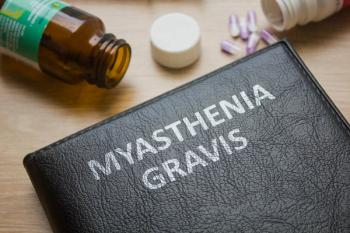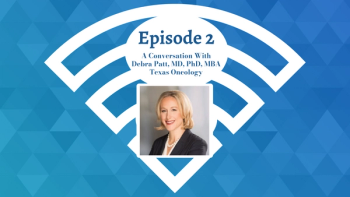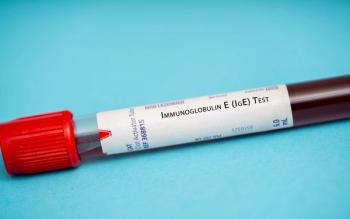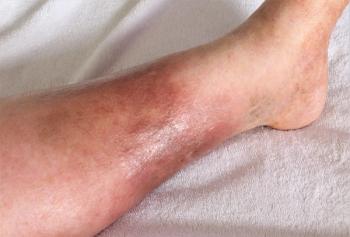
Study authors investigated the effect of physical activity as a modifiable risk factor among individuals living with high-risk hypertension in this subanalysis of data from the Systolic Blood Pressure Intervention Trial (SPRINT).

Maggie is a senior editor for The American Journal of Managed Care® (AJMC®) and produces written, video, and podcast content covering several disease states. She joined AJMC® in 2019, and has been with AJMC®’s parent company, MJH Life Sciences®, since 2014, when she started as a copy editor.
She has a BA in English from Penn State University. You can connect with Maggie on LinkedIn.

Study authors investigated the effect of physical activity as a modifiable risk factor among individuals living with high-risk hypertension in this subanalysis of data from the Systolic Blood Pressure Intervention Trial (SPRINT).

Stephen Nicholls, PhD, MBBS, Monash University and Victorian Heart Hospital, explains how he works closely with patients and study sites in SURPASS-CVOT to avoid weight loss drug discontinuation and weight regain.

Study authors used data from the Taiwan National Healthcare Insurance Research database and Death Registry for their population-based retrospective cohort study.

Sheila Garland, PhD, MSc, Memorial University in Newfoundland, Canada talks about the cognitive effects cancer can have on patients, beyond treatment side effects, and the direct impacts these can make on patients’ lives and care.

Outcomes for these patients following bystander CPR were compared with those among White patients.

Post heart failure (HF)–related hospital discharge care was investigated among patients through evaluation of usage rates of the Heart Failure Health Storylines mobile health application.

Investigators conducted a case study of a patient who presented with COVID-19–induced seronegative myasthenia gravis, seeking more information on neurological manifestations of the respiratory disease.

Debra Patt, MD, PhD, MBA, joins hosts Emeline Aviki, MD, MBA, and Stephen Schleicher, MD, MBA, for episode 2 of our newest podcast, "Oncology Onward: Conversations With Innovators and Changemakers in Cancer Care."

G.B. John Mancini, MD, University of British Columbia, goes into detail about the recruitment process of the VICTORION-2-PREVENT trial, which focuses on inclisiran to reduce cardiovascular risk.

With data on side-opening cutting forceps showing above a 90% diagnostic rate for tissue biopsy in adult patients with eosinophilic esophagitis (EoE) who undergo biopsy of the esophageal lamina propia (ELP), investigators conducted a pilot study on use of side-opening cutting forceps in younger patients.

Outcomes for in-hospital mortality were compared between adult patients, women vs men, among those who had both acute myocardial infarction (AMI) and heart-related mechanical complications (MC).

Stephen Nicholls, PhD, MBBS, Monash University and Victorian Heart Hospital, expands on the patient characteristics and potential impacts of COVID-19 on SURPASS-CVOT, the phase 3 cardiovascular outcomes trial for tirzepatide.

Investigators recommend including domestic violence and abuse as risk factors in public health strategies that target atopic disease assessments.

Dayna Johnson, PhD, MPH, MSW, MS talks about the necessity of community partnerships as the recipient of this year’s Associated Professional Sleep Societies (APSS) Diversity, Equity, and Inclusion Leadership Award at SLEEP 2023 and how inquiring into the community is vital for integrating healthy sleep practices.

With a broad research focus on heart disease risk reduction through the development of novel treatment strategies, Stephen Nicholls, MBBS, PhD, Monash University and Victorian Heart Hospital, Melbourne, Australia. discusses contributions in the space from therapies with systemwide effects.

Emelia J. Benjamin, MD, ScM, Boston University Chobanian and Avedisian School of Medicine, is the recipient of this year’s Honorary Fellow of the American Society for Preventive Cardiology award. Here she describes what atrial fibrillation is, how the condition announces itself, and why this area of cardiovascular medicine is receiving so much attention.

The ASPC Congress on CVD Prevention is taking place in Arlington, Texas, July 21-23. Here, G.B. John Mancini, MD, University of British Columbia, emphasizes the importance of having an international perspective on preventive cardiology.

Judite Blanc, PhD, is lead author on the abstract, “Social Determinants of Sleep Disorders Among Multiethnic Americans in the NIH All of Us Research Program,” which was presented on June 5th at the SLEEP 2023 conference.

Recent research shows that in the setting of cocaine use among patients with heart failure (HF), those who are classified as obese had better clinical outcomes compared with patients with HF who do not have obesity.

The ASPC 2023 Congress on CVD Prevention will take place in Arlington, Texas, from July 21-23, and in this interview, President-Elect Michael Shapiro, DO, FASPC, runs down what attendees should look most forward to this year.

Outcomes in this new analysis were compared among children aged 6 to 11 years, all of whom had severe atopic dermatitis and were randomized to treatment with dupilumab or placebo for 16 weeks.

The current literature is lacking on outcomes among patients with comorbid chronic rhinosinusitis (CRS) and immunoglobulin deficiencies, especially for those who must use surgery to manage their CRS.

With this study, investigators hoped to advance their understanding of cellulitis-mimicking reactions among patients currently receiving chemotherapy.

Few validated measures exist to quantify sleep disturbance among patients who have the chronic inflammatory skin condition prurigo nodularis.

This new study compared heart failure–related outcomes between adults patients randomly assigned 1:1 by carpal tunnel syndrome status, with the principal outcome being a diagnosis of new-onset heart failure.

This newest analysis on atopic diseases compared outcomes between persons considered to be sexually diverse (lesbian, gay, or bisexual) and heterosexual individuals.

The study investigated event rates for several outcomes in the year following a first hospitalization for heart failure (HF), including implementation of guideline-directed medical therapy (GDMT).

Data included in this analysis are from the Respiratory Health in Northern Europe study, and they include asthma status, asthma-like symptoms, and other respiratory symptoms.

Outcomes of concern for this retrospective study were eosinophilic esophagitis (EOE) mucosal biopsies, EoE diagnosis, proton pump inhibitor initiation, and recommendations being followed for repeat esophagogastroduodenoscopy.

Judite Blanc, PhD, University of Miami Miller School of Medicine, discusses how total sleep needs vary among ages and the consequences of these changing hourly totals.

259 Prospect Plains Rd, Bldg H
Cranbury, NJ 08512
© 2025 MJH Life Sciences®
All rights reserved.
